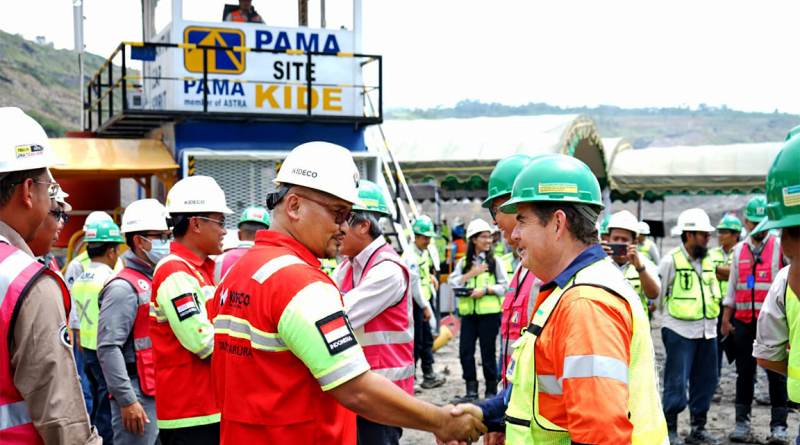Indonesian Coal Mining Enters a New Era with Autonomous Dozers
PT Pamapersada Nusantara (PAMA), one of Indonesia’s leading mining contractors, has taken a groundbreaking step in enhancing safety and efficiency within its operations. In collaboration with RCT, a global leader in mining automation technology, PAMA has introduced autonomous dozer operations at its Kalimantan coal mining site. This marks a significant milestone as PAMA becomes the first open-pit coal mine in the region to deploy automated dozers, setting a new standard for safety in the industry.
The integration of RCT’s advanced automation solutions aims to reduce risks in high-hazard areas, ensuring that operators can control heavy machinery remotely without exposure to unstable terrain, water bodies, or steep slopes.
The push for automation in mining safety
Mining operations, particularly in open-pit environments, pose numerous safety challenges. Dozer operators often work in high-risk areas such as tailing ponds, dams, and steep embankments, where unstable ground can lead to serious accidents. Traditionally, manual dozer operations require close proximity to these hazards, exposing workers to significant dangers, including equipment rollovers and ground collapses.
Recognizing these risks, PAMA sought a solution that would enhance operator safety while maintaining operational efficiency. The company identified automation as the key to mitigating hazards and reducing human exposure to dangerous environments.
Globally, the mining industry is witnessing a growing trend toward automation as companies prioritize safety and cost efficiency. From autonomous haul trucks to remotely operated drilling rigs, technological advancements are reshaping how mining is conducted.
How RCT’s technology is changing dozer operations
To address the risks associated with manual dozer operations, PAMA partnered with RCT to integrate advanced automation technology into its fleet. The project focused on retrofitting Komatsu D155 and D375 dozers with RCT’s ControlMaster® Line-of-Sight system, enabling operators to control machines remotely from a safe distance.
One of the key features of this automation technology is portable vision capability, which provides real-time visual feedback to operators. This ensures precise control of the dozers, even in hazardous conditions where visibility is compromised.
Beyond safety improvements, RCT’s solution also enhances machine performance and longevity. Automation reduces unnecessary wear and tear by optimizing operational commands, leading to lower maintenance costs and extended equipment lifespans. Additionally, the system enables better resource management by minimizing downtime, improving fuel efficiency, and increasing overall productivity.
Early results and industry impact
The implementation of RCT’s automation technology at PAMA’s Kalimantan site has already yielded significant results. Operators have reported greater control and confidence while handling dozers remotely, particularly in high-risk areas such as tailing ponds and steep inclines.
The SHE Management Development Department Head, Pak Ridha, emphasized the importance of this project in safeguarding workers while maintaining operational efficiency. He noted that automation not only protects employees but also streamlines workflows, making dozer operations more predictable and precise.
Similarly, Shane Smith, RCT’s Account Manager, highlighted the broader implications of this milestone. According to Smith, PAMA’s adoption of automation serves as a benchmark for the Indonesian mining industry, demonstrating the potential of technology-driven safety solutions.
The successful implementation of autonomous dozers at PT Pamapersada Nusantara (PAMA) represents the beginning of a new era for the Indonesian mining industry. As one of the first open-pit coal mines in the region to integrate automation, PAMA has set a precedent that could shape the future of mining operations across the country.
Sources:
To keep up-to-date with our latest mining and minerals news, subscribe to our newsletter today.
